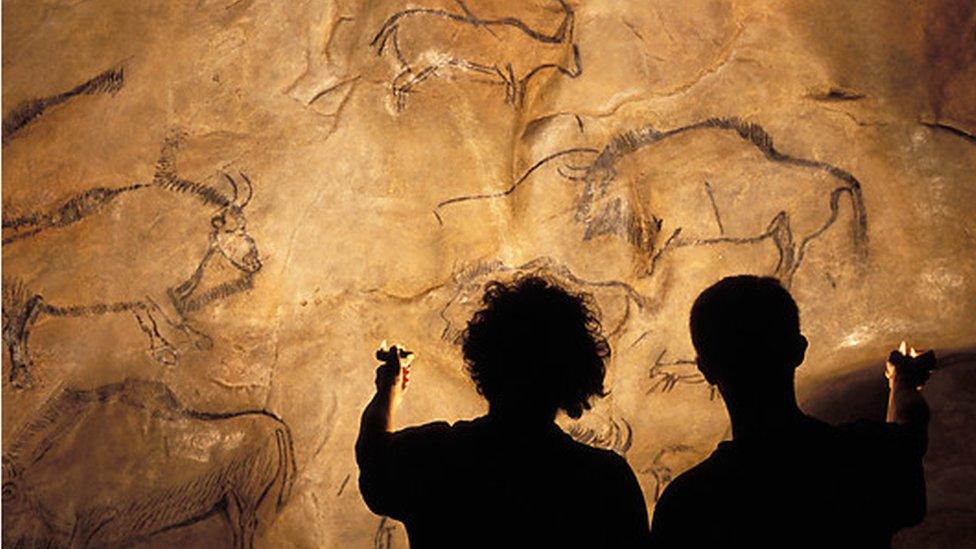DNA clue to how humans evolved big brains
- Published

Humans may in part owe their big brains to a DNA "typo" in their genetic code, research suggests.
The mutation was also present in our evolutionary "cousins" - the Neanderthals and Denisovans.
However, it is not found in humans' closest living relatives, the chimpanzees.
As early humans evolved, they developed larger and more complex brains, which can process and store a lot of information.
Last year, scientists pinpointed a human gene that they think was behind the expansion of a key brain region known as the neocortex.
They believe the gene arose about five or six million years ago, after the human line had split off from chimpanzees.
Now, researchers have found a tiny DNA change - a point mutation - that appears to have changed the function of the gene, sparking the process of expansion of the neocortex.
The human brain
Average weight of adult chimpanzee brain: 384g (0.85lb)
Average weight of modern human brain: 1,352g (2.98lb)
The modern human brain can store, collect and process lots of information, and deliver output, in split seconds; it can also solve problems and create abstract ideas and images
However, a big brain uses up lots of energy and makes childbirth more difficult
Source: Smithsonian Museum
It may have paved the way for the brain's expansion by dramatically boosting the number of brain cells found in this region.
Dr Wieland Huttner of the Max Planck Institute of Molecular Cell Biology and Genetics in Dresden, Germany, led the research.
"A point mutation in a human-specific gene gave it a function that allows expansion of the relevant stem cells that make a brain big," he told 大象传媒 News.
"This one, as it is fixed in the human genome - so all living humans have the gene - apparently gave a tremendous selection advantage, and that's why we believe it spread in the human population."
Between two and six million years ago, the ancestors of modern humans began to walk upright and use simple tools.
During this extended period of time, their brain size started to increase. They began to spread around the world, encountering different environments.
From about 800,000 years ago, their brain size increased further, helping them to survive in a changing world.
Still, many questions remain about how early humans evolved larger brains.
It is likely that the gene is one of many genetic changes that gave humans their unique intelligence and thinking ability.
The research is published in the journal, .
Follow Helen on